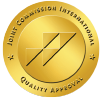Addiction is depicted as a brain disorder that consists of certain repetitive actions that may take place despite detrimental or regrettable consequences. Apparently, most people tend to think about drug or alcohol abuse when they hear the word ‘addiction.’
On the other hand, addictions have involved a plethora of behaviors, including the installation of different substances for pleasure, gambling and sexual fantasies, cravings, and actions. Denial of addiction can further have more negative effects on the addict’s conduct, prolonging suffering and making it hard to get help.
Studies reveal addiction denial is widespread. In one study, 56% of substance abusers were in denial about their addiction. People using drugs may constantly confront their denial to conduct these acts. This piece talks about how denial in addiction affects and the different stages of it.
What Is Denial?
Addicts often defend themselves with denial. It is psychological when a person denies their addiction or its detrimental effects. Understanding denial is essential for good therapy because it can prevent people from seeking help and making beneficial changes.
What is Denial in Addiction?
Denial, given a picky term, refers to a person who doesn’t accept or can’t see that he has an addiction problem. It means a person has evaded to avoid any purposeful confrontation about the truth about behavior.
In the course of dealing with an addiction, defense can evolve in various forms. Other people might be in the denial stage, maintaining that they don’t have a drinking or drug problem, some of it irrespective of the signs of addiction. The rest will know they have the issue, but they won’t blow it out of proportion, or they will rationalize all their actions.
When someone is hooked, they can decide to deny that they are addicted to avoid the terrible pain and agony that could come from being found out. Using this way of dealing, people can get control, even if they feel guilty, ashamed, or scared during the process. On the other hand, addicts can avoid facing the truth by denying it, but this keeps them from getting help for their addiction because they will never have to face it directly.
The Stages of Denial in Addiction
-
Initial Denial
At the onset of addiction, the people in question can be found in a state where denial is the hallmark, as they want to brush off the allegations of substance abuse problems. They may be absolute, the denial, the problems, one, the partner, or the medical professionals, attributing any issue, like a disease, old age, or stress. He does this by simply implying that someone who has an alcohol problem might think, ‘I only drink to relax; it is not a problem at all’ or ‘I can stop anytime I want, but I am currently not in the mood.’
-
Minimization
In the process of “minimizing,” people admit that they have a problem but fail to see its gravity. These statements could be their way of adjusting to and rationalizing their drug or alcohol use, like “I only get high on weekends” or “I can handle my drug use; it’s not affecting my job or relationships”. Moreover, they could be pointing to individuals who they believe have a more pronounced addiction, using this comparison to justify themselves.
-
Justification
During the explanation stage, the addicts try to have an explanation of their behavior by looking for reasons or arguments in support of their habit. They may attribute it to external causes such as stress, pliers, or peer pressure. Likewise, a gambler addicted to gambling might utter the words, “I gamble because I am under stress; it is relaxing, ” or “I am a very hard worker; after a challenging day, I deserve to spoil myself.”
-
Full Denial
A total refusal implies an aspirant accepts the state where he makes no pretense in claiming the existence of an addiction. They often react angrily and refuse to accept the truth while blaming others for their bad behavior. At this level, it can be hard to help people because addicts often lie about their problems, which means they refuse to get the help they need and even change their minds.
Strategies to Overcome Denial in Addiction
There are various ways to recognize and overcome denial in addiction:
- Self-reflection: Encourage people to consider their actions and their effects. This can help them realize their addiction and the need for change.
- Seeking Feedback: Encourage them to ask family, friends, and doctors for comments. Hearing others’ addiction effects can help people realize they need to change.
- Education: Inform people about addiction and its repercussions. This can explain their addiction and the benefits of treatment.
- Therapy: Therapy can help with denial. Therapists can determine the origins of denial and help people cope.
- Support groups: Support groups foster community and understanding. Sharing recovery experiences can make people feel less alone and more determined to overcome denial.
Impact Of Denial On Recovery
Denial, which is the cause of difficulties for people who fight drugs, has an adverse effect on their recovery success. Those who do the opposite, that is, refusing to recognize the existence or scope of their addiction, may be less likely to reach out for help or engage in treatment. This can leave them bound to drugs for a longer time and make them more likely to face adverse outcomes.
Whether we avoid or deny the problem, admitting it and accepting it as somebody who needs rehab are both critical factors in helping someone start to improve so that the treatment process can succeed. When people who are in denial are trying to avoid responsibility for their actions or make the proper changes to overcome addiction, their efforts will surely be in vain. Individuals lacking social support may resume their drug use or encounter difficulties in their recovery.
It is very important in treatment to see denial in addiction as this is something that can be beaten. This way, people can see the truth behind their modesty and agree that changes must be made. As soon as a person admits that they have an addiction, they can start the process of getting better and making suitable changes in their lives.
Read More: A Comprehensive Guide To Substance Abuse Programs for Youth
Final Words!
Understanding denial in addiction is essential for good therapy because it can prevent people from seeking help and making beneficial changes.
Initial denial, minimization, justification, and full denial are addiction denial stages. Each stage poses hurdles that can hamper healing if ignored.
Successful treatment requires overcoming denial. Self-reflection, feedback, education, therapy, and support groups can assist people overcome denial.
Denial and recovery require early detection and action. Addiction treatment often includes medical, psychological, and social assistance, thus expert help is recommended. By overcoming denial in addiction and seeking treatment, people can recover and live better, happier lives.




